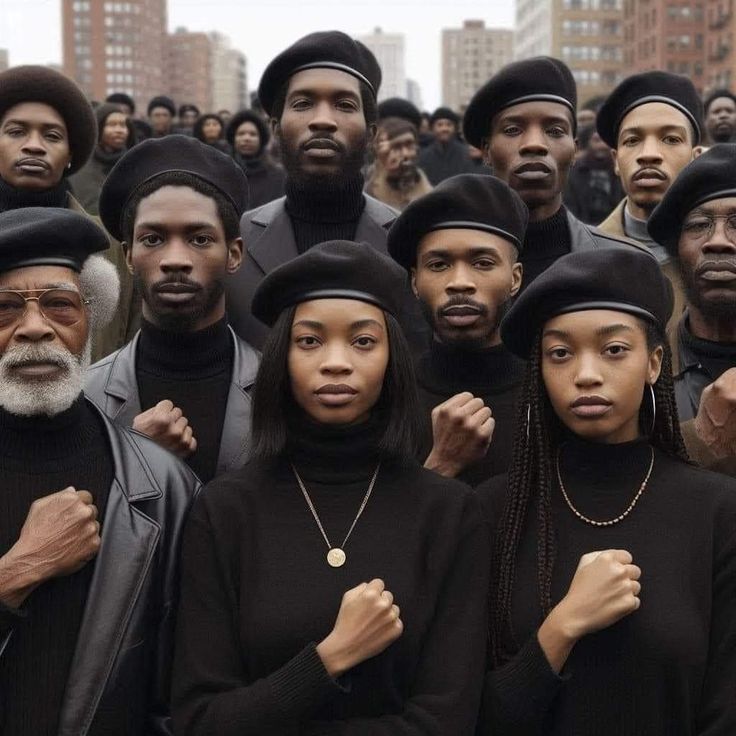"The Souls of Black Folk" by W.E.B. Du Bois

- Repoter 11
- 31 Jan, 2025
Overview: The Souls of Black Folk is a seminal work by W.E.B. Du Bois, first published in 1903. It is a collection of essays that explores the history, struggles, and aspirations of African Americans in the post-Reconstruction United States. Du Bois uses both personal experiences and social commentary to address issues of race, identity, and inequality in America. The book is a groundbreaking examination of the African American experience and remains a cornerstone in the study of race and civil rights in the U.S. Summary: The Souls of Black Folk is divided into several essays, each of which examines a different aspect of African American life and the social conditions of the time. Du Bois introduces the concept of the "veil," a metaphor for the racial divide that separates Black people from white Americans. This veil symbolizes the alienation and discrimination that African Americans face, both in society and in their own lives. In the opening essay, Du Bois introduces the concept of "double consciousness," a central theme throughout the book. Double consciousness refers to the internal conflict African Americans face between their own sense of identity and how they are viewed by the larger white society. Du Bois writes that African Americans are constantly aware of their race and the prejudice they encounter, creating a divided self that struggles to reconcile personal identity with societal expectations. Du Bois also discusses the history and aftermath of slavery and the Reconstruction period. He argues that the failure of Reconstruction and the rise of Jim Crow laws created a racial hierarchy that continued to oppress African Americans long after the Civil War ended. In the book, Du Bois critiques the prevailing notion of racial inferiority, challenging the idea that Black people were inherently inferior to white people. He advocates for higher education for African Americans, believing that intellectual development and participation in higher culture would be crucial in the fight for racial equality. One of the key essays in The Souls of Black Folk is titled "Of Mr. Booker T. Washington and Others," in which Du Bois critiques the educational philosophy of Booker T. Washington. Washington promoted vocational and industrial education for African Americans as a means of gaining economic independence. Du Bois, however, argued that Washington's approach was too accommodating to the racial status quo and that it neglected the importance of higher education and political activism for Black advancement. Du Bois advocated for a "Talented Tenth," a small group of educated Black leaders who would lead the African American community in the struggle for civil rights and social change. Themes: Double Consciousness: Du Bois’s concept of double consciousness describes the internal conflict African Americans face in trying to reconcile their Black identity with how they are perceived by white society. This psychological split is one of the defining experiences of Black life in America, as African Americans are forced to view themselves through the lens of an oppressive majority culture while also struggling to maintain their own cultural identity. The Veil: The "veil" is another important metaphor in Du Bois's work. It symbolizes the racial divide that separates African Americans from white Americans, and it represents the social and psychological distance between the two groups. The veil reflects the racial discrimination that African Americans experience and the barriers that prevent them from fully participating in American society. The Failure of Reconstruction: Du Bois critiques the aftermath of the Civil War and Reconstruction, arguing that the failure to fully integrate African Americans into society left them vulnerable to systemic oppression. Despite the legal end of slavery, African Americans continued to face discrimination, segregation, and disenfranchisement, particularly in the South, where Jim Crow laws restricted their rights and freedoms. Education and Leadership: Du Bois stresses the importance of education in uplifting the African American community. He advocates for higher education and intellectual development as essential tools for achieving social equality. Du Bois’s vision contrasts with Booker T. Washington's emphasis on vocational training, as Du Bois believed that a small group of educated Black leaders—the "Talented Tenth"—could guide the rest of the community toward progress and political equality. Racial Inequality and the Struggle for Civil Rights: Du Bois’s work is a powerful critique of the racial inequalities in American society. He argues that racial discrimination is not just a personal prejudice but a systemic issue deeply embedded in social, political, and economic structures. Du Bois calls for collective action and activism to address these injustices and secure civil rights for African Americans. Conclusion: The Souls of Black Folk is a groundbreaking and influential work in the study of race and social justice. Du Bois’s reflections on the African American experience offer a complex and nuanced analysis of race relations in America, highlighting the psychological and social challenges faced by Black individuals in a society defined by racial discrimination. His concept of double consciousness continues to be an essential framework for understanding the dynamics of race and identity. The book’s exploration of education, leadership, and the ongoing struggle for civil rights provides a powerful call to action, encouraging future generations to fight for racial equality and justice.
Leave a Reply
Your email address will not be published. Required fields are marked *




